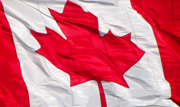Tonda McCharles, Toronto Star (The Star.com) – Friday, March 12
OTTAWA—The Canadian political “centre” is shifting to the right, a new national poll suggests. A Harris-Decima survey for the Manning Centre, says Canadians who identify themselves as in the centre of the political ideological scale are increasingly embracing traditionally “conservative” values. Those include the “supremacy of the family,” an incremental approach to resolving problems, the definition of marriage and that abortion is “morally wrong.”
Pollsters Allan Gregg and Andre Turcotte said that most believe governments should play a minor role or no role in the regulation of individual behaviour and morality.
As for conservative government policies, the poll suggested a majority of Canadians supported spending deficits, abolishing the long gun registry, action on climate change, the decision to leave Afghanistan in 2011, and management of the economic recession.
Gregg said there is an “ambivalence” among Canadians toward more notionally conservative views about the role of government in society. A majority of Canadians still “cling to the idea that government has a role in managing the economy.” However they are losing confidence in its ability to follow through in any meaningful way, showing more confidence in individual initiative and the private sector.
“They are not overwhelmingly Conservative but it is shifting in that direction—that the private sector should be given a crack at solving issues and problems before we turn to the government,” said Turcotte.
In reality, few identify outright as on the left. “The left is a very lonely place to be right now in Canada,” said Turcotte.
But the pollster said it would be a mistake to believe the centre is a mushy-middle. “There are a lot of commonalities but also a number of very important differences, and in some ways it’s really about the conservatives – small ‘c’ conservatives—about how they use government to solve problems,” Turcotte said.
Turcotte said Canadians don’t want an absolute minimalist approach to government. “The minute you go down that path, then the centrists get their back up and reject it,” he said.
“It’s hard for partisans or believers to come to grips with the messiness” of Canadian political thought, said Gregg. “This ambivalence is not rooted in stupidity, it’s rooted in the Canadian conscience.”
The pollsters concluded that the Conservatives “currently own the political centre,” said Turcotte. He said it is a “surprising shift” from five elections ago, when 41 per cent of self-described centrists voted Liberal. In 2008, 47 per cent of centrists voted Conservative.
Another shift is anticipated when younger Canadians who want “even less of government” grow older, said Turcotte. But Gregg also said there is room for electoral growth for the party that can redefine the role of government “in a modern way that is unsatisfied by any of the political alternatives out there” right now.
Gregg and Turcotte presented the poll results to a networking conference for conservatives organized by the Manning Centre. The survey was conducted through phone interviews with 1,000 adult Canadians between Feb. 1-10, and has a margin of error of plus or minus 3 per cent.

